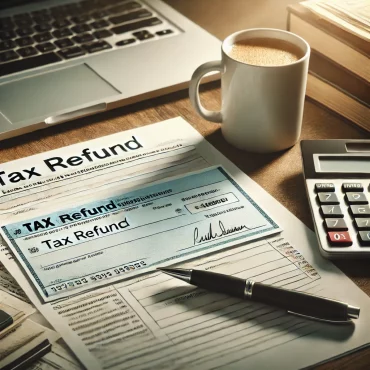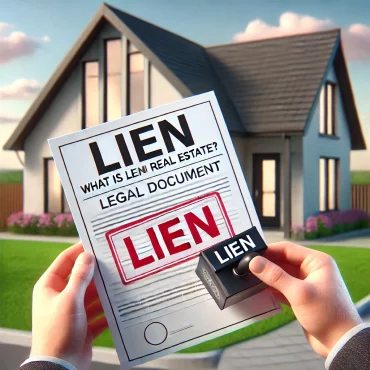
Residential real estate investing has the potential to be highly profitable, offering both short-term gains and long-term financial security. But a common question arises: How much money do you need to invest in real estate? The perceived high costs of purchasing property often intimidate aspiring investors. However, understanding the various costs involved in buying real estate can help you avoid costly mistakes and embark on a successful investment journey.
This article will provide a detailed overview of the financial requirements to start investing in real estate. We’ll also explore how to calculate potential returns on investment (ROI) and discuss alternative investment options if purchasing a property isn’t feasible for you right now.
Initial Costs to Consider
Before buying your first rental property or undertaking a house-flipping project, it’s crucial to consider more than just the property price. Real estate investments require significant cash upfront, and understanding these initial costs is essential.
Down Payment
One of the largest upfront costs when buying real estate is the down payment. Typically, you can expect to pay between 15% and 25% of the property’s purchase price as a down payment. Several factors influence the size of the down payment:
- Type of Loan: Different loans have different requirements.
- Credit History: Better credit scores can lower down payment requirements.
- Type of Mortgage: Fixed or variable rates can affect the down payment.
- Debt-to-Income (DTI) Ratio: Lower ratios may qualify for better terms.
- Loan-to-Value (LTV) Ratio: Affects the amount you can borrow.
- Property Type: Investment properties might require larger down payments.
Even if you meet the down payment requirements, lenders will evaluate other criteria before approving your loan. Generally, you need a minimum credit score of 700, although higher scores (740+) qualify for better rates. Lenders also look for a loan-to-value ratio of 80% and a debt-to-income ratio below 45%.
How much money do you need to invest in real estate? The down payment is just the beginning. A larger down payment can reduce your ongoing costs by securing lower interest rates and smaller mortgage payments.
Closing Costs
Closing costs are another significant expense in real estate transactions. These costs typically range from 3% to 6% of the sale price and include fees for appraisals, inspections, title insurance, legal services, and more. Here are some common closing costs to expect:
- Loan Origination Fee: This fee, usually 0.5% to 1% of the loan amount, covers the lender’s costs for processing the loan.
- Title Search and Title Insurance: Ensures there are no issues with the property’s title and protects against future claims.
- Underwriting Fee: For verifying the borrower’s financial information and credit history.
- Discount Points: Optional fees to reduce the mortgage interest rate.
Additional fees might include attorney fees, recording fees, escrow fees, and prepaid property taxes and insurance.
How much money do you need to invest in real estate? Be prepared for these closing costs, as they can add up quickly and are essential to finalizing your purchase.
Inspection and Appraisal
Investing in real estate typically involves inspection and appraisal costs, usually around $400 each. While not always mandatory, these steps provide valuable insights into the property’s condition and value:
- Home Appraisal: Required by mortgage lenders to ensure the property’s value aligns with the sale price. Factors considered include the property’s size, location, and comparable sales.
- Home Inspection: A thorough evaluation of the property’s condition, checking everything from the foundation to the roof. This can uncover hidden issues that might affect the investment’s profitability.
How much money do you need to invest in real estate? Factoring in these costs ensures you understand the property’s true value and condition, avoiding unexpected expenses.
Contingency Fund
A contingency fund is crucial for any real estate investor. Lenders typically require cash reserves equal to six months of mortgage payments. This fund protects against cash flow issues arising from vacancies, unexpected repairs, or economic downturns. Liquid assets for a contingency fund might include:
- Cash savings
- Stocks or bonds
- Retirement accounts
- Insurance policies with cash value
For example, if your monthly mortgage payment is $1,500, you would need at least $9,000 in reserves.
How much money do you need to invest in real estate? Ensuring you have a robust contingency fund helps mitigate financial risks and maintain stability.
Calculating Your Initial Investment
Let’s break down the costs using a hypothetical property valued at $280,000:
- Down Payment (25%): $70,000
- Closing Costs (5%): $14,000
- Inspection and Appraisal: $800
- Contingency Fund: $7,800 (based on a $1,300 monthly mortgage)
Total initial investment: $92,600.
How much money do you need to invest in real estate? This example illustrates the significant upfront costs involved. The final amount can vary based on credit scores, loan terms, and other factors.
Financing Options
Financing your real estate investment often requires a loan. Different financing options can impact your initial costs and long-term financial strategy.
Traditional Mortgage
A conventional mortgage typically offers moderate closing costs, reasonable interest rates, and lower monthly payments. However, it usually requires a larger down payment.
How much money do you need to invest in real estate? A traditional mortgage might need more upfront cash but can be a stable, long-term financing option.
Hard Money Loan
Hard money loans are short-term loans often used for fix-and-flip projects. They may require a lower down payment but come with higher interest rates and a balloon payment at the end.
How much money do you need to invest in real estate? These loans can reduce initial costs but carry higher risks and costs over time.
Partnerships
Partnerships allow investors to pool resources to buy larger properties. This strategy can reduce individual upfront costs and spread financial risks.
How much money do you need to invest in real estate? Partnerships can lower your financial burden but require clear agreements to manage shared responsibilities and profits.
Private Money Loan
Private money loans come from non-traditional sources like private lenders, family, or friends. These loans often have flexible terms but can be high-risk due to unregulated interest rates and repayment terms.
How much money do you need to invest in real estate? These loans can be attractive for their flexibility but should be approached with caution due to potential financial risks.
Ongoing Costs to Consider
After the initial investment, real estate properties incur ongoing expenses. Budgeting for these costs is crucial for maintaining profitability.
Property Management
Hiring a property manager can relieve you of the day-to-day responsibilities of managing a rental property. Property managers typically charge 8% to 10% of the rental income. They handle tasks like maintenance, tenant screening, and rent collection.
How much money do you need to invest in real estate? Including property management fees in your budget ensures your property remains well-maintained and profitable.
Property Taxes and Insurance
Property taxes and insurance are recurring costs for property owners. The amount varies depending on the property’s location and value. Landlord insurance is also essential to protect against potential losses from damages or liability claims.
How much money do you need to invest in real estate? Regularly setting aside funds for taxes and insurance helps manage these predictable expenses.
Mortgage Payments
Monthly mortgage payments cover the loan’s principal and interest. These payments continue until the loan is fully paid off. Variable interest rate mortgages can fluctuate, affecting your budget.
How much money do you need to invest in real estate? Ensuring your rental income covers mortgage payments is key to maintaining positive cash flow.
Maintenance and Repairs
Budgeting for maintenance and repairs is vital to keep your property in good condition. A common rule is to set aside 1% of the property’s value annually for maintenance. Always plan for emergency repairs to avoid disruptions in cash flow.
How much money do you need to invest in real estate? Proper maintenance budgeting protects your investment and keeps it attractive to tenants.
Vacancy Costs
Vacancies can impact your income significantly. Budgeting 5% to 10% of the annual rent for potential vacancies helps cushion the financial blow of unoccupied periods.
How much money do you need to invest in real estate? Preparing for vacancies ensures you can handle temporary income loss without financial strain.
Why Is ROI Important?
Return on Investment (ROI) measures the profitability of your real estate investment. It considers rental income, operating expenses, market conditions, and property appreciation. A positive ROI indicates that the investment is likely to be profitable and helps build wealth.
How much money do you need to invest in real estate? Calculating ROI helps you determine if a property is worth the investment and aligns with your financial goals.
How to Determine if You Can Afford to Invest in Real Estate
Understanding how much money you need to invest in real estate involves more than just upfront costs. It’s essential to assess the property’s potential income and overall investment value. Here are some methods to evaluate potential investments:
The 1% Rule
The 1% rule suggests that a property’s monthly rental income should be at least 1% of its purchase price. This rule helps determine if the property can generate positive cash flow.
How much money do you need to invest in real estate? The 1% rule provides a quick check to see if the property will cover its costs.
Gross Rent Multiplier (GRM)
GRM is calculated by dividing the property’s purchase price by its annual gross rental income. This ratio helps compare properties
and estimate how long it will take to recoup the investment.
How much money do you need to invest in real estate? GRM helps identify properties with better investment potential.
The 70% Rule
For house flippers, the 70% rule advises not paying more than 70% of a property’s after-repair value (ARV) minus renovation costs. This guideline helps ensure profitable resale.
How much money do you need to invest in real estate? The 70% rule provides a buffer for unexpected expenses in renovation projects.
Using Leverage to Your Advantage
Leverage involves using borrowed funds to amplify potential returns. For example, putting down a smaller down payment conserves cash for other investments. Alternatively, using existing property equity to fund new investments can enhance your portfolio.
How much money do you need to invest in real estate? Leveraging can stretch your investment dollars but requires careful planning and experience to manage risks effectively.
Alternative Investment Options
If buying a property isn’t feasible right now, there are other ways to invest in real estate with lower upfront costs and less risk.
Real Estate Investment Trusts (REITs)
REITs allow you to invest in real estate without owning physical property. These trusts own and manage income-producing real estate and distribute profits to investors. REITs offer a low-cost, hands-off approach to real estate investing.
How much money do you need to invest in real estate? Starting with REITs can be as affordable as $5,000 and offers diversified exposure to real estate markets.
Pooled Funds
Investing in pooled funds or real estate crowdfunding projects allows you to invest smaller amounts of money with other investors. This collective approach provides flexibility, diversification, and potential tax benefits.
How much money do you need to invest in real estate? Platforms like Fundrise and Concreit enable investments with minimal upfront costs.
Secured Loans
Secured loans involve lending money to other investors for short-term real estate projects. This option offers high returns with less long-term commitment. However, it’s crucial to select secure, reliable loans to mitigate risks.
How much money do you need to invest in real estate? Starting with secured loans can require as little as $10.
Fractional Ownership
Fractional ownership involves buying a share in a property with other investors. This approach provides partial ownership and income from the property. You can be as active or passive as you prefer in managing the property.
How much money do you need to invest in real estate? Fractional ownership allows for investment in larger properties with lower individual costs.
Budgeting—Putting It All Together
Understanding how much money you need to invest in real estate is key to maximizing profits and building a successful portfolio. Your budget should cover the down payment, closing costs, and a contingency fund. Additionally, plan for ongoing costs like maintenance, taxes, and vacancies to ensure steady cash flow.
By comprehensively budgeting and exploring various investment strategies, you can make informed decisions that lead to successful real estate ventures. Whether through traditional property purchases or alternative investment methods, knowing your financial requirements will set you on the path to profitable real estate investing.
Written by: ericcounts
Previous post

- 84
labelReal Estate todayMarch 25, 2024
Unlocking the Potential of Commercial Land Investments: A Comprehensive Guide
Considering land for commercial use in your real estate portfolio? You’re onto something big. Land investment, encompassing vacant lots and development-ready land, offers lucrative opportunities. By strategically developing commercial plots, [...]
Similar posts

- 1
labelReal Estate todayMarch 7, 2025
Did You Get a Tax Refund?

- 32
labelReal Estate todayAugust 8, 2024
What Is a Lien in Real Estate?
Copyright 2021 REIE.INFO






Post comments (0)